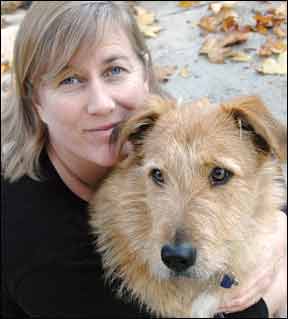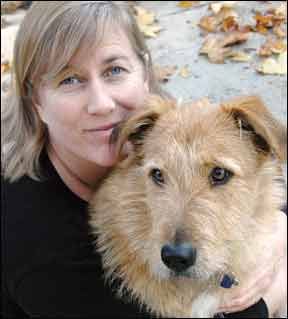A few years ago, I asked Whole Dog Journal’s readers about the use of the words “owner” versus “guardian.” The response was polarized; either term makes some people see red. Perhaps that’s why the phrase “pet parent” has become so popular – it seems to avoid the third-rail effect of the other options, and conveys both caring and responsibility. But I have to admit; when one of my friends talks about her “canine son,” I tense up a little. I can’t even tell you why; it’s weird.

288
This isn’t the only term having to do with our canine companions that twists my tail. I can’t stand the word “command” – as in, “Give your dog the command to sit.” I’m not royalty, and slavery was abolished in this country long ago, so what’s with the commanding? When training, I believe in giving the dog a cue that alerts him to the opportunity to perform a behavior and earn a reward. When hanging out with my dog – you know, socially – I usually “ask” him for certain behaviors; I might even insist that he sit or down when I give him the cue to do so . . . but command? The concept is not representative of my relationship with anyone I know.
Whole Dog Journal’s Training Editor Pat Miller was the first to ask me to omit the use of “it” when discussing any sentient being – as in, “I wanted to pet the dog, but it bit me.” I’m glad she sensitized me to this issue. It’s difficult to distance yourself from (or elevate yourself above) another living creature when you’re forced to consider (at a minimum) his or her gender. You’d never say, “A kid got hit by a car; it suffered serious injuries;” or “A tourist got its shoes muddy at the beach.” Using he, she, his, and her when talking about any species of animal, human or nonhuman, preserves the respect for the individual.
This principle can be extended a bit farther. In WDJ, we also use the word “who” when talking about individuals. So we’d say, “The dog who earned a treat is happy,” rather than “The dog that earned a treat is happy.”
These are small things, but consideration for all sentient beings is not.
More congratulations for Pat Miller are in order. She was recently welcomed to the Board of Directors for the Certification Council for Professional Dog Trainers (CCPDT).
The certification program administered by the CCPDT was the first national certification for dog trainers in the U.S. Candidates who pass the CCPDT’s written examination earn the title Certified Professional Dog Trainer-Knowledge Assessed and may use the designation, “CPDT-KA,” after their names. All certified trainers must earn continuing education credits to maintain their designations. They must also adhere to a strict code of ethics in their dog training practices.
A dog trainer as professional, educated, and ethical as Pat Miller will be a terrific asset to the CCPDT Board and its mission.






